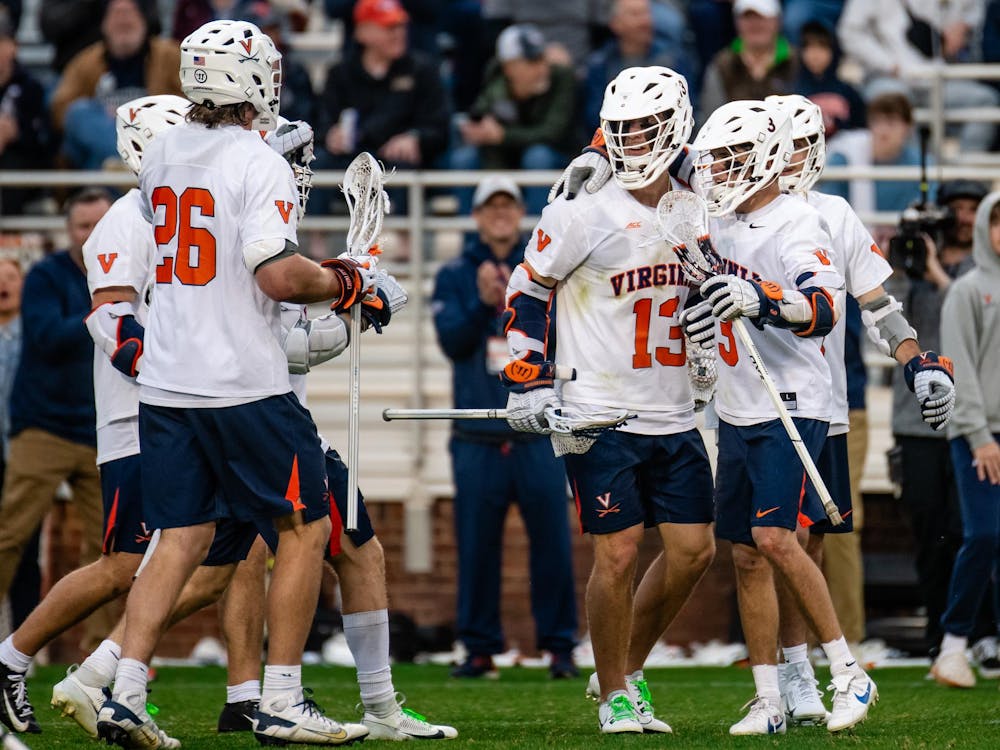By all counts Sunday night's Super Bowl lived up to all its hype as a true American holiday. It was an unbelievable display of glitz, glamour and spectacle, and the game was even exciting too. I walked away from the Super Bowl with two principle observations: The Patriots fully deserve their dynasty hype and the infusion of forced patriotism into sports seems to know no end. Nearly every sports writer in the country has already attacked that first topic, so I am going to focus on the latter.
I have long been puzzled by the playing of "The Star-Spangled Banner" before sporting events but have never had any qualm with it -- and still don't, for that matter. Sports have become a unique and almost necessary forum for patriotism ever since Sept. 11, 2001. There are few other regularly-occurring large public gatherings, and sports certainly provided an apt method of healing and of returning the world to a sense of normalcy after the terrorist attacks.
That said, Sunday's Super Bowl was inundated with overt patriotism about which not every citizen probably feels comfortable. The military choirs sang a stirring national anthem, but the fighter jet flyover, though a long-standing tradition, doesn't quite mean the same as it used to in light of the recent war in Iraq. The Super Bowl draws a broad international audience, which may not appreciate the dramatic effect of a sonic boom the way average Americans do. Furthermore, the projection of the Statue of Liberty onstage during Paul McCartney's set was a bit overkill, especially since McCartney is decidedly not from America. The Anheuser-Busch commercial saluting American troops was a nice tribute, and private companies are certainly entitled to make such statements. But I for one see sports at least in part as an escape from the rigors and stresses of one's daily life and connecting sports events with politics and patriotism makes me mildly uncomfortable.
Sunday night was certainly not the first time we've seen these two worlds collide, even recently. Former professional football player Pat Tillman died in combat this fall, and he was rightfully celebrated for his sacrifice.
Two women's basketball players earned national headlines for turning away from the flag during the national anthem in 2002: Toni Smith of Manhattanville College and Virginia's own Deidra Chatman. They weren't the first hoopsters to engage in such a protest, however, as Nuggets guard Mahmoud Abdul-Rauf refused to look at the flag during an NBA game in 1996. He claimed the anthem was at odds with his Islamic faith. Smith and Chatman were not disciplined for their actions, but Abdul-Rauf was suspended for one game.
This past summer Red Sox closer Keith Foulke was threatened with a fine by Major League Baseball after he began displaying an American flag on his hat. Foulke, whose father served in the U.S. Air Force, said he chose to wear the flag as a sign of support for American troops fighting overseas in Iraq. Commissioner Bud Selig ultimately wrote a personal letter to Foulke, asking him to remove the flag on the grounds that it violated baseball's uniform policy which does not permit any individual altercations.
Certainly, I understand Selig's concern in part. Permitting one player to modify his uniform sets a precedent of acceptance of future adjustments. No matter how worthwhile the cause may be, it begins a slippery slope -- for whose cause is it worth amending the uniform policy, and whose good cause isn't worth it?
At times, however, Major League Baseball has allowed the celebration of our national pride to become intrusive into the competition itself, far more than any square-inch flag patch could ever do. I speak of the New York Yankees allowing former Irish tenor Ronan Tynan to sing a slow, drawn-out version of "God Bless America" during the seventh-inning stretch of Yankee home games. Tynan has become an important cultural icon, especially in post-9/11 New York for his moving performances at memorial services and firefighter funerals.
But by singing the full, extended version of "God Bless America," with the obscure verse that no one really knows (the one that starts with "While the storm clouds gather..."), he has the ability to change the outcome of Yankee home playoff games. Minnesota Twins manager Ron Gardenhire, for instance, estimated that the seventh inning stretch is a full three minutes longer than it is at other stadiums.
That may not seem like much, but when you're a tiring starting pitcher forced to stand still and endure the New York cold in mid-October for three additional minutes, chances are your arm will stiffen up and you may lose effectiveness. That gives the Yankees, who bat in the bottom of the seventh, an advantage. In their 15 home playoff games the last two years, the Yankees have their greatest success in the bottom of the seventh, scoring more often (7 of 15 games) and more total runs (12) than in any other inning. I can't prove causation, but that's a pretty damning correlation.
How is this an acceptable display of patriotism if a little flag patch is not? My seemingly very obvious and simple suggestion is this: sing the anthem before the game even starts so as not to harm either pitcher.
The long history of patriotism in sports predates Sept. 11, 2001, but the two continue to become increasingly intertwined. In this tenuous political era in America, the sports industry needs to scale back its unabashed patriotism or else risk offending fans and athletes.






